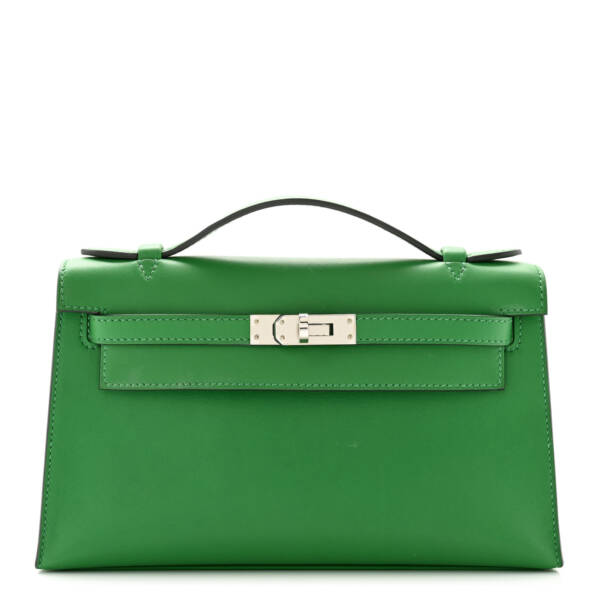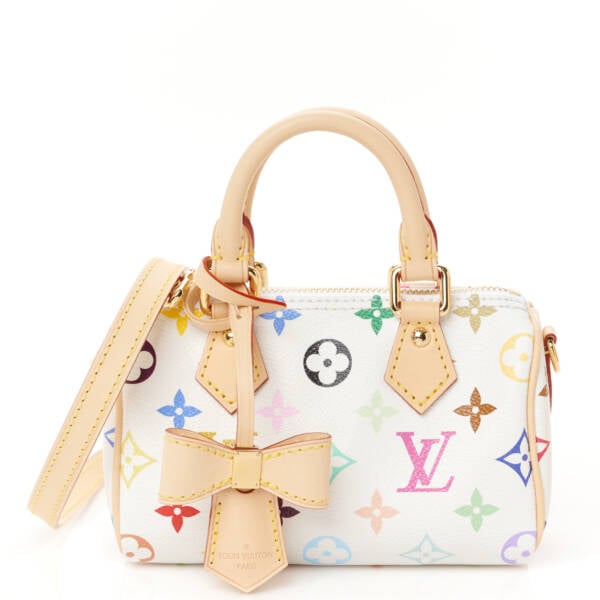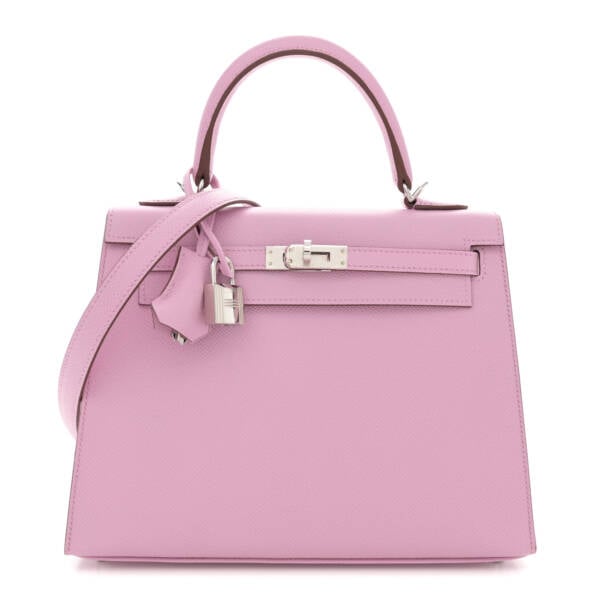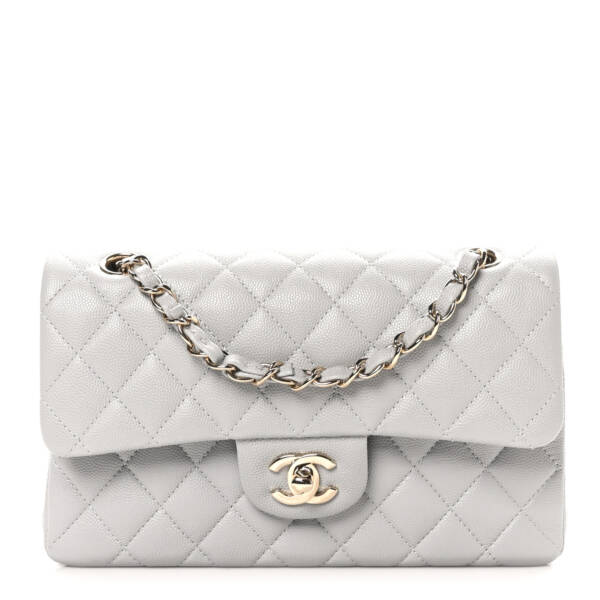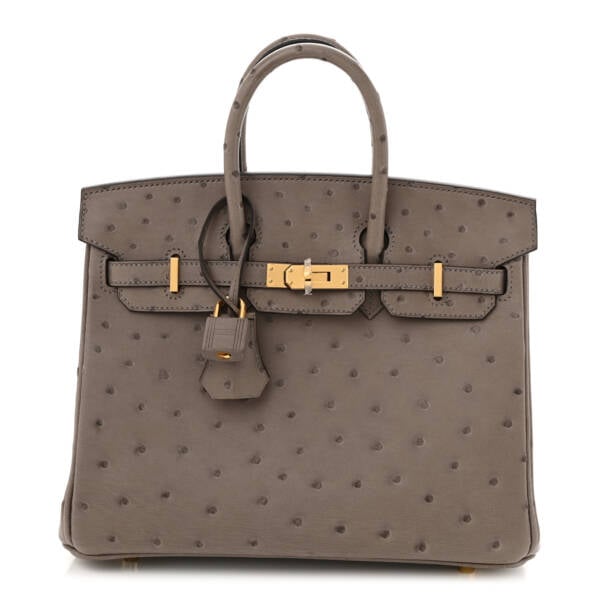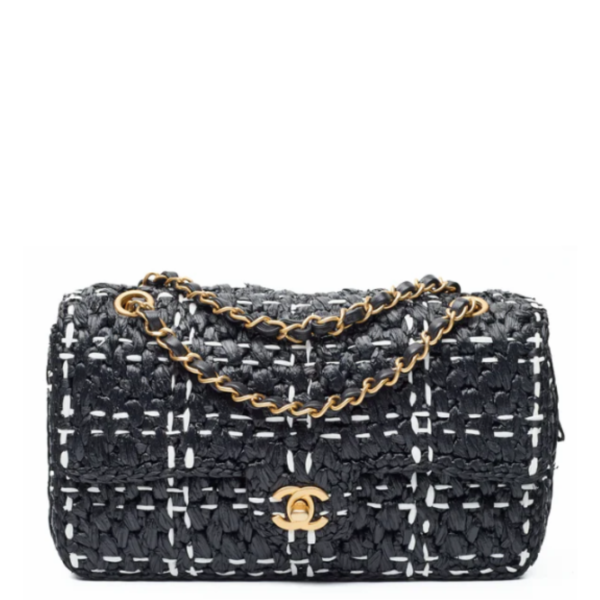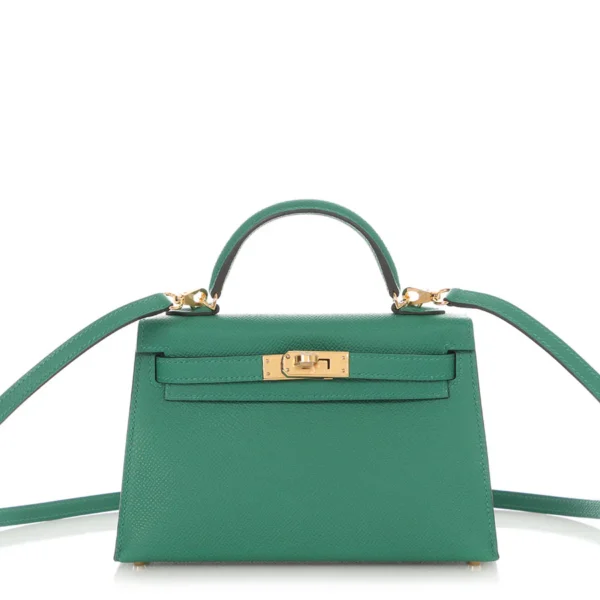UPDATE 2.6.25
And the case continues . . . But the hearing on Hermès’ motion to dismiss the Second Amended Complaint was cancelled by Judge Donato. In a docket note in the Northern California federal court, the Judge ordered that “the case is suitable for decision without oral argument.”
The Judge will decide based on the Second Amended Complaint and all of the briefs filed with the Court. Since this is a Motion to Dismiss, the question is whether, based on the facts alleged and the law, plaintiffs have stated a legal claim.
UPDATE 10.29.24
As expected, Hermès has asked the Court to dismiss plaintiffs’ third attempt at stating a cause of action in their California antitrust case. The plaintiffs’ response to the motion is due in two weeks (11.8.24) and Hermès has the opportunity to reply one week later (11.15.24). The court has scheduled a hearing for 10am on January 30, 2025.
UPDATE 10.15.24 Plaintiffs File Second Amended Complaint
Will the third time be the charm for the California plaintiffs charging Hermès with antitrust, unfair competition, and more? The lawsuit stems from the allegations of three plaintiff that they were unable to purchase Hermès Birkins and Kellys, despite spending thousands of dollars on other Hermès products. On October 11, 2024, they filed a Second Amended Complaint that elaborates on the charges, re-defines the alleged tied product and tying market, and adds additional claims of monopolization.
At last month’s hearing, Judge Donato permitted plaintiffs to try again in describing and defining the alleged improper practices and the alleged tied and tying products. Plaintiffs label Hermès products as part of the “elitist” luxury market (along with Chanel), as distinguished from aspirational and affordable luxe brands. The tied market is alleged to be virtually all non-bag products sold by Hermès, Chanel, and Louis Vuitton (so-called Ancillary Products). They accuse Hermès of imposing a “hidden lottery system that forces consumers to purchase substantial amounts of Hermès Ancillary Products to “qualify” for the mere opportunity to buy a Birkin.” Second Amended Complaint, paragraph 37)
According to plaintiffs (Second Amended Complaint, paragraph 47):
Hermès tying scheme affects a more than de minimis and substantial amount of interstate commerce in the luxury ready-to- wear apparel and accessories market. It leads customers to purchase products that they either do not want or would prefer to purchase from one of Hermès’ competitors such as Chanel or Louis Vuitton.
Trying to parse through this and figure out how this affects interstate commerce (required for a federal antitrust claim), perhaps the question is whether it is anticompetitive that Hermès prefers you to buy one of their scarves rather than one from Chanel. Lacking, however, is any allegation that plaintiffs were prevented from purchasing from any other brand, just that they were somehow motivated to purchase from Hermès.
At this stage of the litigation, plaintiffs are required to provide facts sufficient to state a cause of action (aka claim), not to prove it, and they can allege alternative theories. However, from a semi-layperson perspective, complaining it is unfair, and/or monopolization, that only Hermès can make and sell Birkins and Kellys, and that there is no perfect substitute seems odd. These designs and names are protected intellectual property, in the same way that Pepsi cannot sell something called Coca-Cola. Nothing prevents others from selling a differently named and designed two-handled tote or top-handle purse, or, to continue the analogy, a cola soda. Moreover, as the Second Amended Complaint alleges, Birkins and Kellys are sold by others on the secondary market.
Whether plaintiffs have alleged a valid claim remains to be seen and Hermès will no doubt ask the court to dismiss the Second Amended Complaint.
UPDATE 9.20.24 Judge Expresses Skepticism About Antitrust Lawsuit Against Hermès
At the 9.19.24 hearing on Hermès motion to dismiss the First Amended Complaint against Hermès alleging federal and California antitrust violations, Judge James Donato admitted to struggling with the allegations. Per a local news report, he said “These are luxury goods. There are people who want Birkins. This is a highly consumer choice-driven market.” And he pointed to an example that no one is forced to purchase a Hermès belt if she wants one from another brand, like Prada. Ultimately, Judge Donato gave plaintiffs three weeks to file another amended Complaint explaining how Hermès’ alleged actions adversely affect commerce.
UPDATE 7.11.24 Hermès Moves to Dismiss First Amended Complaint, Claiming Plaintiffs Are Upset They Cannot Get Birkins To Make Money Reselling Them
Hermès says plaintiffs in the California antitrust case are upset that they cannot purchase and then resell Hermès Birkins and Kellys (Birkins) at a profit. That’s right – Hermès posits that plaintiffs’ real beef is that they can’t flip the bags and make money. Needless to say, per Hermès, that’s not what the antitrust laws are about.
In case you’ve forgotten or lost track, that lawsuit claiming the Hermès Birkin and Kelly are too hard to buy is still moving forward. Putting forth purported antitrust violations, the plaintiffs’ last move was to amend the complaint and add a third plaintiff (see below or link). Now, as expected, the Hermès defendants (collectively, Hermès) ask the Court to dismiss the plaintiffs’ First Amended Complaint. Beyond the litany of legal reasons that Hermès alleges plaintiffs’ still have not properly alleged any antitrust violations, Hermès tackles what it believes is the real reason that plaintiffs commenced this lawsuit.
According to Hermès:
“Plaintiffs’ new allegations come nowhere close to fixing the fatal flaws in their claims. But they do reveal the true motive behind their lawsuit: Plaintiffs want on-demand access to Birkin and Kelly handbags so they can immediately resell them at higher prices.”
Defendants’ Notice of Motion and Motion to Dismiss Plaintiffs’ First Amended Class Action Complaint; Memorandum of Points and Authorities in Support Thereof (Motion), page 7.
That’s right, using the words of the First Amended Complaint (and Hermès hopes there will not be a second or third) Hermès points to the following:
“Plaintiffs’ New Claims of Injury as Resellers. Plaintiffs’ Amended Complaint reveals the motivation for this lawsuit: the alleged inability to resell Birkin handbags at substantial markup. Specifically, Plaintiffs claim to ‘have suffered injury . . . by being denied the opportunity to obtain a Birkin bag, which . . . can be resold at a higher price.’”
Motion, page 11.
Per Hermès, “[i]f that doesn’t sound like the basis for a monopolization claim, it’s because it isn’t one. Nothing in the antitrust or unfair competition laws compels that outcome.” Motion, page 7.
Hermès challenges the remainder of the legal claims as well, first denying that it has pre-bag purchase shopping requirements:
“Hermès does not require a customer to purchase any other products before purchasing a Birkin or Kelly handbag. But, even if it did, that would not violate the law.”
Motion, page 7.
Without going into the details of antitrust law, suffice it to say that Hermès challenges the sufficiency of the plaintiff’s allegations regarding monopoly market power, use of market power, and effect on competition, highlighting that the alleged harm must be to other sellers.
Next up will be the plaintiffs’ response, and likely Hermès’ further reply. As of now, a hearing is set for September 19, 2024.
UPDATE 6.17.24 A New Amended Complaint and a Third Plaintiff
So you might be wondering what’s going on in the California lawsuit against Hermès. When we last discussed the legal maneuvering, Hermès had made a motion to dismiss the Complaint on the ground that it failed to state a legal claim. That’s a pretty standard move. And Plaintiffs’ next step was to submit an Amended Complaint, attempting to correct the alleged deficiencies. In so doing, Plaintiffs added a few more things.
First, there’s a new and third Plaintiff to complain about Hermès sales practices regarding Birkins and Kellys (defined by them collectively as Birkins). Mengyao Yang claims that last fall she attempted to purchase a Birkin at the Hermès San Francisco boutique and was told that she’d first have to buy “Ancillary Products.” She says she spent over $10,000 on these items, which in the Amended Complaint are defined to be shoes, scarves, belts, clothing, jewelry, and home goods sold by Hermès. It’s not clear whether she was able to purchase a Birkin.
The Amended Complaint, in response to Hermès’ argument that Plaintiffs failed to allege a relevant market for antitrust purposes, now states: “The relevant market at issue is the market and/or submarket of luxury handbags in the United States, within which Defendants, through their Birkin handbags, exercise substantial market power. Defendants’ iconic Birkin bag, limited production, and high demand contribute to their dominant position in this market. Defendants’ dominant position in this market, characterized by high barriers to entry and brand recognition, allows them to control prices and engage in the anti-competitive conduct alleged herein to the detriment of consumers.”
Plaintiffs add several paragraphs alleging that there is no substitute for the Birkin: “The Birkin bag’s exclusivity, limited availability, and iconic status make it difficult to find a perfect substitute.” Not even from Gucci, Prada, and Louis Vuitton – and yes the Amended Complaint calls out those brands. In support, there are citations to former statements by Hermès about the uniqueness of its products and financial success, as well as to published media, including an article in PurseBop.
The Amended Complaint also discusses the luxury handbag market generally – that it operates differently than the general handbag market, with relative inelasticity as buyers of these high end products tend to be less sensitive to price. There are also allegations about how Birkins sell in the secondary market at premium prices (often multiples) of the retail pricing, claiming it allows Hermès to increase its prices.
Whether the above will be sufficient to sustain the Amended Complaint remains to be seen. Hermès again is asking the Court to dismiss the lawsuit. Plaintiffs are scheduled to respond by August 16, 2024, and Hermès may submit a further reply by September 9.
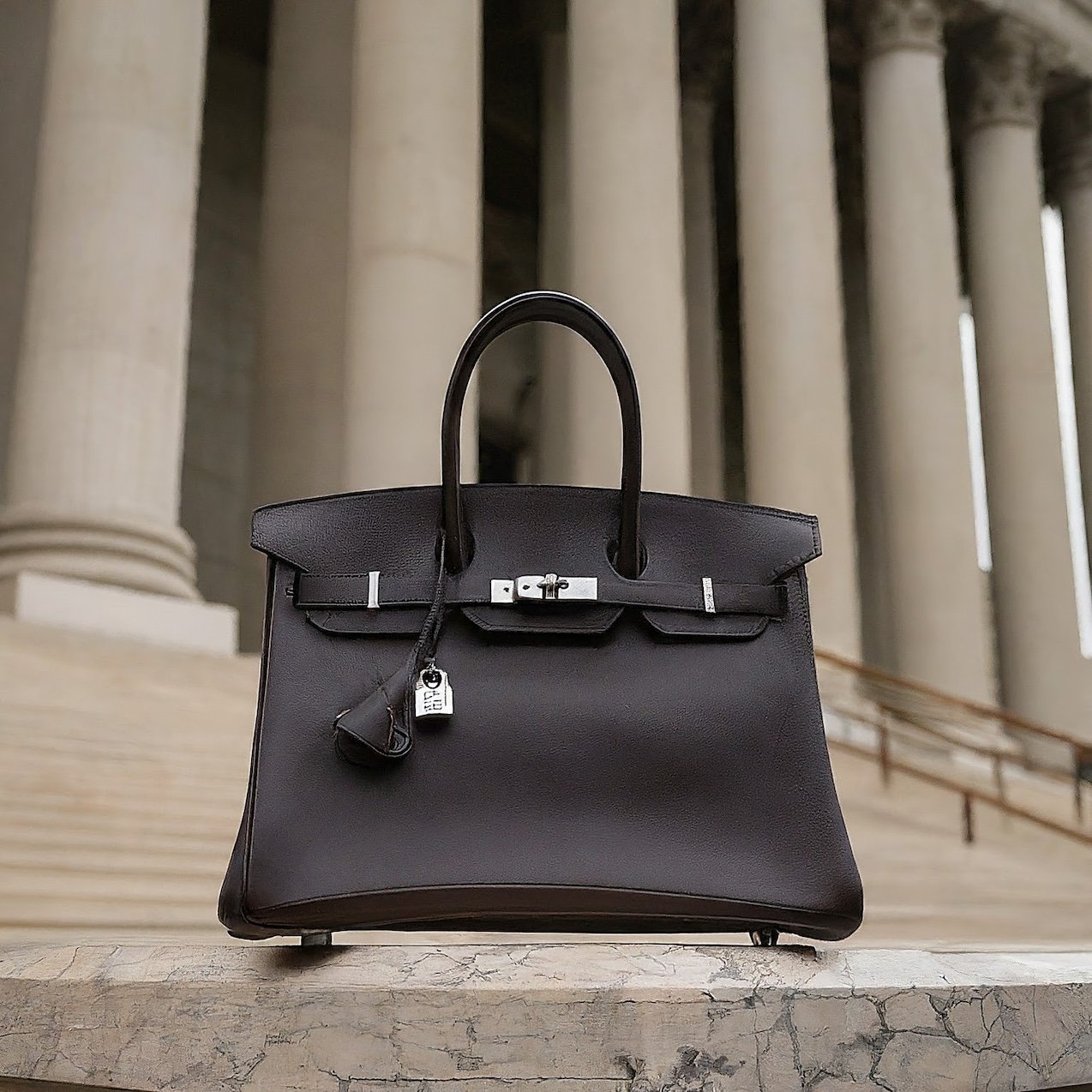
No legal claim here, says Hermès in its response to the California antitrust lawsuit. The first line of Hermès Motion to Dismiss the Complaint reads: “Plaintiffs fundamentally misunderstand the antitrust laws.” While Hermès denies that it requires customers to purchase other Hermès products before purchasing a Birkin or Kelly, it further argues that even if it did, that would not violate federal or state antitrust law. As it says in its Motion to Dismiss:
“The antitrust laws do not punish companies for creating better, more desirable products than anyone else.”
Hermès argues that Plaintiffs fail to allege the requisite proper tied product market, tied product, and market power. For purposes of a motion to dismiss, Plaintiffs’ factual allegations are assumed to be true.
Simplified here, Hermès says there is no claim of harm to the competitive process nor allegations that “Hermès has excluded other sellers of the supposedly tied products.” Hermès posits that all of Hermès’ business lines – homeware, jewelry, shoes, ready-to-wear, perfume, furniture – cannot be lumped into a single “product market” called Ancillary Product. There are other sellers of these multiple products: “This market definition does not appear to reach beyond Hermès—even though Hermès faces clear competition from different sellers on the wide range of products it sells.” In other words, Hermès does not wield market power.
A date is set for July 11.
Read Hermès motion here
- Maura Carlin posted 11 months ago
- last edited 2 months ago



